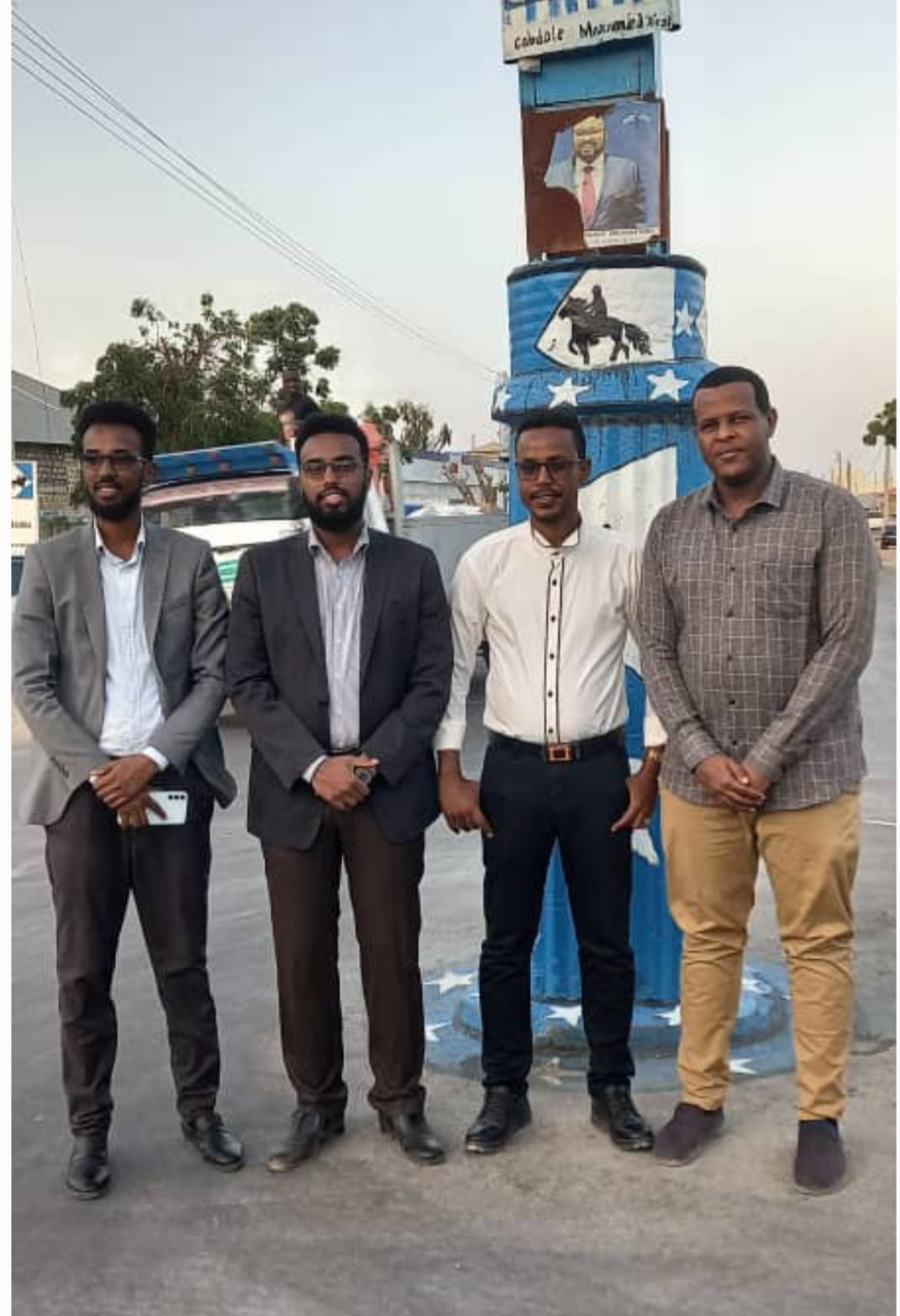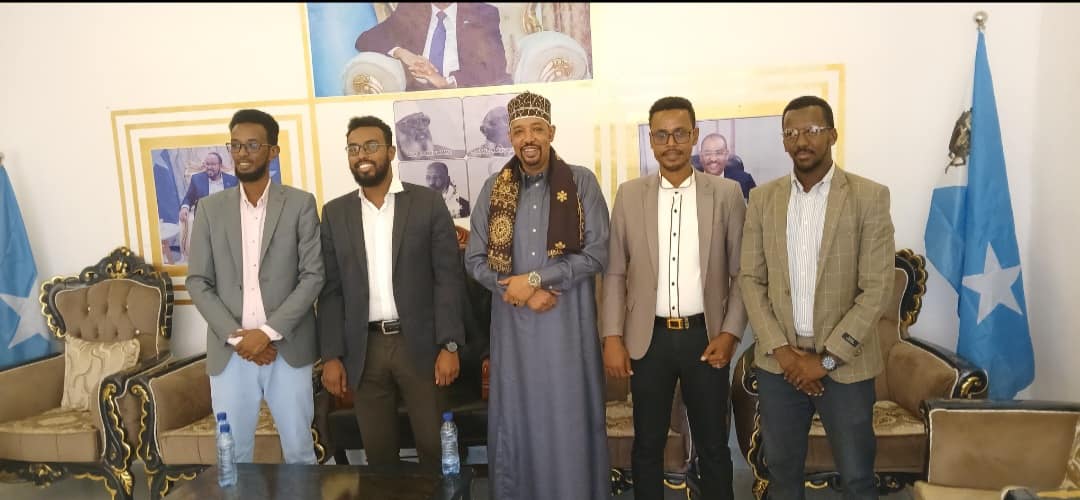My two accompanied fellow scholars and I visited the newly-established SSC-Khatumo state’s capital city of LasAnod on 13th of July this year.
The nature of our visit was that of work, the primary goal of our visit being to assess the possibility of opening a new campus of Green Hope University, whose Garowe campus was the chairman at the time. In LasAnod. My co-passengers were Mohamed, head of marketing at Green Hope’s Garowe campus, and Burhan who teaches Anthropology at the university.
Me and these two gentlemen, despite us all sharing the same workplace, were somewhat unfamiliar with each other. We conversed with each other during our 2-hour drive to Las Anod, and through sharing stories and cracking jokes, became well-acquainted with each other. We are friends now, and here is where the wise Somali proverb of “Qof haddaad rabtid inaad baratid, ama jid baa lala maraa, ama jadiin baa lala cunaa”, which can loosely be translated to, “If you want to know who someone really is, either go on a trip with them or share a meal with them”, rings true.

We were welcomed into the city by a group of intellectuals, who received us at the city’s point of entry. Las Anod’s points of entry are ones I know all too well, as in the past, during Somaliland’s reign over the city, they were much dreaded by travellers, notorious, and surrounded by infamy.
I used to study at Borame’s Amoud University department of Agriculture between 2012-2016, and when headed to Borame, Las Anod’s screening and security checks were too difficult, tantamount to intentional impediment by the Somaliland administration.
Passengers were ordered to unload from vehicles, lined up for hours, and asked many unnecessary questions, most of which were unrelated to security altogether. The goal from these checks, one could deduce, was to create as many inconveniences for travellers as possible with the aim of discouraging them from ever coming back, and bad word to spread about the city, which must be said, was largely successful, as no one looked forward to coming to or transiting through Las Anod.
But this time, because Somaliland was driven out and the locals established an administration of their own, it was a completely different experience. We were stopped only once seated inside our vehicle, asked the purpose of our visit and that was it. We weren’t put through the unnecessary lengthy interrogations of the past, and we arrived smoothly.
I consider myself a well-travelled person who has been to many different Somali and non-Somali destinations, but my highlight of the entire trip was Las Anod and its people’s unmatched hospitality. At every stop, we were met with smiley faces and received with unrivalled warmth.
My Encounter with Garad Jama Garad Ismail, a Respected Traditional Elder in Sol region

Our guide, Bile, a well-connected LasAnodi native, had managed to schedule a meeting for us with Garaad Jama Garaad Ismael, the most senior traditional elder of Jama Siyad, a sub-clan of Dhulbahante, who are believed to be the majority in the city. The meeting took place at the Garaad’s house.
Garaad Jama, very busy as is typical of elders of his ilk, was kind enough to abruptly clear his schedule and dedicate a whole hour for us – who popped up unannounced and without an appointment. During the meeting, he embodied all that we expected him to embody; he was witty, sage, generous, sociable, and above all, really humble.
We were all stunned when he told us that he is from, grew up and studied in Garowe. He named places of people and places that we recognized and some that we didn’t, that predated us.
He for instance told us that he was in those days the Math teacher of Hassan Abgaal, a well-known politician in Puntland that recently served as the state’s Minsiter of Finance and stood as a candidate in the state’s Presidential election in early January this year. He also mentioned Jama Kibar, a famous footballer in his generation, also well-known in the city, whom he played with. Being a sports person myself in my youth, I used to hear from people stories about what a great footballer Kibar was in his time; a legend us young upcoming footballers looked up to.
Our conversation was cordial and humorous. For instance, I jokingly told him that none of us is married, and that a gentle push toward getting wedded was much welcome. He retorted that we are past the age we need pushing and are in need to pray for now. This resulted in everyone present bursting out laughing.
He gave us a quick briefing and context on the state of the city and SSC in general, the challenges and opportunities alike.
What I liked about SSC’s elders and leaders is how accessible and easy to meet they are. They are all grounded and always seated with the community’s different parts, be it women, youth, or soldiers.
This; being accessible to your community and not isolated from them, is something all Somalis holding any type of authority, be it cultural or political, should emulate.
After we were done meeting Garaad Jama, we headed to the mayor’s office. Like the Garaad, he was warm in his welcoming of us, a theme consistent throughout our stay, and gave us a much-needed lowdown on how the city is healing from the brutal and sustained massacre campaign it underwent at the hands of Somaliland a year or so ago.
He was optimistic about the future of the city and had big plans to execute for its betterment. He was particularly happy meeting us as scholars planning on extending our educational services to the city and encouraged us to accelerate our plans.
What I was happily surprised about throughout my stay, was how peaceful the city was. For a city that was a war front just under a year ago, the administration succeeded in disarming the public and cultivating a sense of calm and peace.
A competent and public-friendly police force tasked with safeguarding the city’s security was established and the military personnel were all relocated to the outskirts where their military bases are.
We along with some of the city’s youth were out having tea and conversing as late as 2:00 am. For context, during Somaliland’s rule over the city, due to many repetitive mysterious killings and a generally rife insecurity, it was a habit that the public go inside their houses right after the Maghreb prayer.
The city of LasAnod is a throwback in many aspects. For example, akin to the traditional Somali way of palavering, the city’s cafes are replete with long lines of people, who talk with each other about all types of things; sport, politics, marriage et al.
A restaurant in the city called Abdi Cawke left me in awe, as I have never in my life seen a restaurant that crowded before. People were sat as far as your eye could see, and we were told that many waiters were employed at the restaurant due to the plethora of orders the restaurant receives.
There is a general change in the mood of the public, a restored sense of brotherhood and unity. The many sub-clans of Dhulbahante while under Somaliland’s rule were all at each other’s throats. Hargeysa used to pit and arm these clans against one another and manufacture conflicts, with the aim of prolonging its stay. That has now changed, and these clans have managed to amicably resolve their longstanding conflicts and are now united in their endeavor to make their region and state prosper.
The City’s Recovers from Somaliland’s Mayhems
The city is recovering well from Somaliland’s year-long indiscriminate bombing. The city’s previous buildings are being renovated and new ones erected. There is an uptick in infrastructure projects in the city.
But despite these efforts, it still needs massive investments and cash injection to take its infrastructure to the next level.
SSC’s diaspora communities and rest of Somalis should partake in the city’s renovation efforts, as its ripe for investment. Its well-populated too so a return of profits is almost a guarantee.
The hotel we were staying at, Casura hotel, was offering excellent service and their customer-treatment was top-notch.
I was specifically struck by how gentlemanly one of their waiters, named Abdiqani, was. He made our experience at the hotel unforgettable, as he was fulfilling all our wishes and then some more.
After four days of staying there, we finally left Las Anod on the 17th of July. Through its historic relevance and people’s warmth, it left a lasting impression on me, and I’ll be surely coming back, and soon.
About the Author
Mr. Fahad Yusuf, Is the immediate Chancellor of Green Hope University Garowe Campus.
He holds a bachelor’s degree in agriculture, and is a double master’s degrees Holder: One in Business Administration, and another one in Agronomy. He’s currently pursuing his PhD in Agricultural Economy.
____________________________________________________________
Opinions expressed in this article are the author’s own and do not necessarily reflect the editorial policy of Puntland Mirror.






